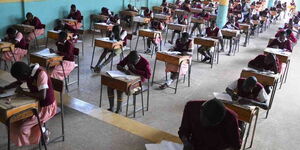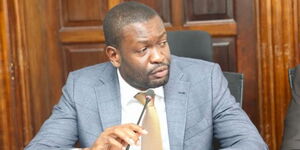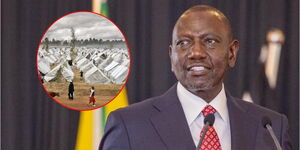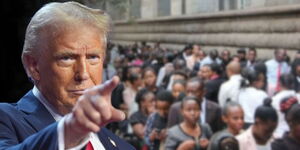Kenya dismissed a report by Moody’s Investors Service that it is among developing countries facing an economic crisis.
In a press statement Sunday, July 17, the Treasury Cabinet Secretary Ukur Yatani defended the country's investment climate saying Kenya is seeking to establish regional and pan-African opportunities due to government's sustained commitment to establish a conducive environment.
CS Yatani stated that Kenya had maintained a stable microeconomic environment by pursuing fundamental monetary policies including lowering electricity tariffs an subsidising fuel prices.
"Further measures to waive import duty on maize and subsidize fertilizer prices are expected to further moderate domestic prices," remarked CS Yatani in a statement.
CS Yatani also defended Kenya's business regulatory reforms and infrastructure investment saying the country had improved its competitiveness and ease of doing business. In 2020, Kenya was ranked 4th in Africa with a score of 72.3 in the World Bank's ease of doing business report.
The country's Foreign Direct Investment (FDI) rose from Ksh56.7 billion in 2013 to Ksh75.1 trillion in 2017.
Collapsing currencies caused by an almost depleted foreign exchange reserve were said to partly be part of the economic crisis, especially in Kenya.
But CS Yatani argued that government securities (Treasury Bills) with a 91-day maturing period remained low at 8 per cent with interbank rate at 5.1 percent.
The interbank rate is the rate of interest charged on short-term loans between banks. Banks borrow and lend money in the interbank lending market in order to manage liquidity and satisfy regulations such as reserve requirements.
Treasury record shows forex exchange reserves increased by 25 percent to Ksh1 trillion in April this year, representing 4.8 months of import cover.
This is despite the Kenya Association of Manufacturers (KAM) in May raising a red flag over the current high commodity prices in the international market that had increased the US$ required to purchase the same quantities of products.
KAM then held that manufacturers had been forced to plan for currency payments by purchasing foreign currency in advance, increasing working capital as they struggle to obtain sufficient dollars to meet their dollar obligations on time from commercial banks.
As at the close of 2021/22 fiscal year revenue collection by the Kenya Revenue Authority (KRA) amounted to Ksh1.9 trillion, an above target of Ksh67.5 billion, a 22.9 percent growth.
Treasury blamed ongoing war between Russia and Ukraine which entered its fifth month July on surging food and fuel prices.
"Government has responded to these challenges by taking measures to reduce the cost of doing business to waiver taxes, fees and charges on maize and animal feeds imported,"
These interventions included fertilizer subsidy kitty of Ksh3 billion in April and June to cushion farmers from high prices, with a 50kg of the commodity going for an average of Ksh6,500.
With the effects of the pandemic still in play, the CS noted that President Uhuru Kenyatta's Big Four Agenda are expected to buffer economic recovery, with the current regime in its sunset days.












